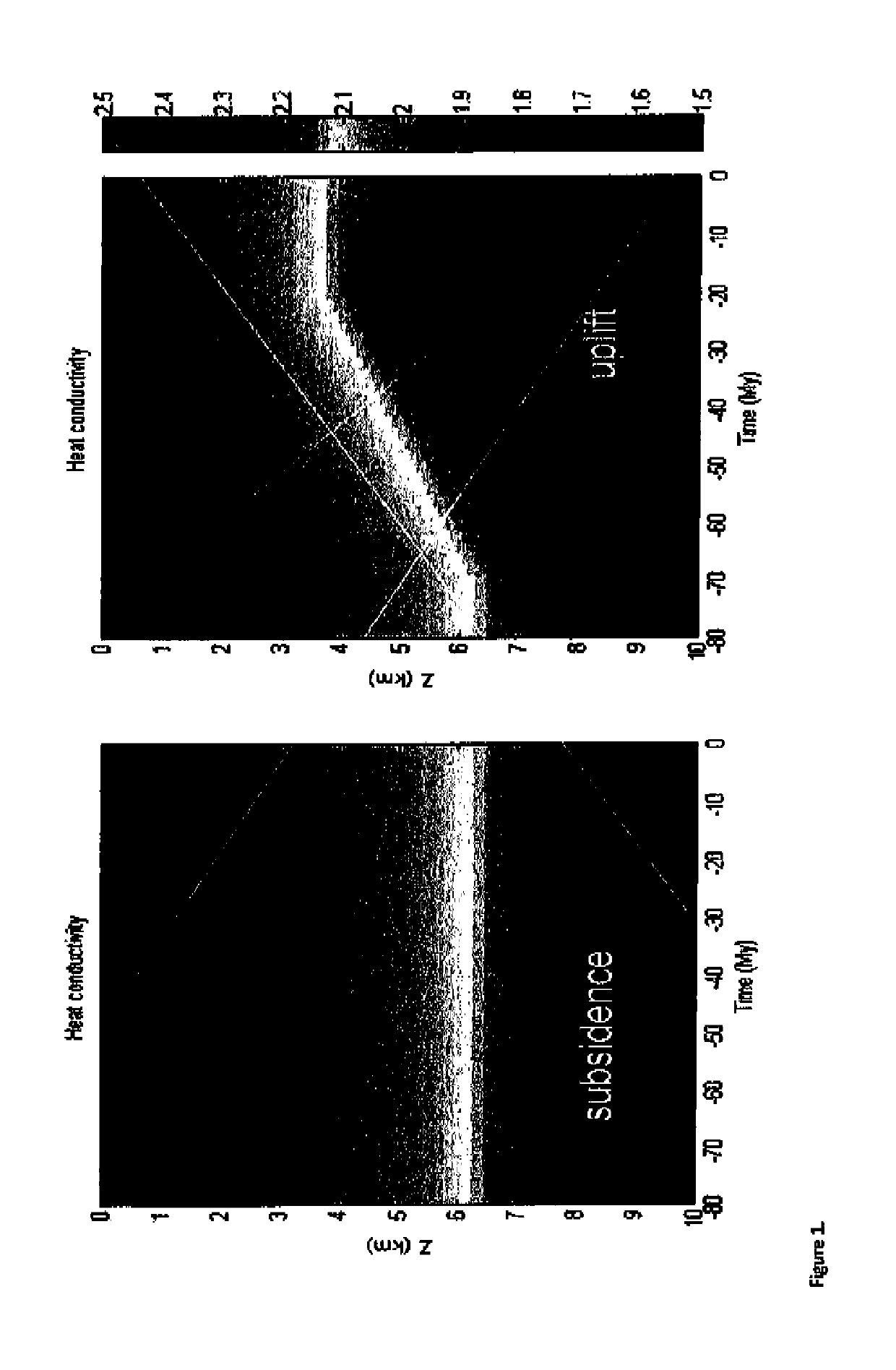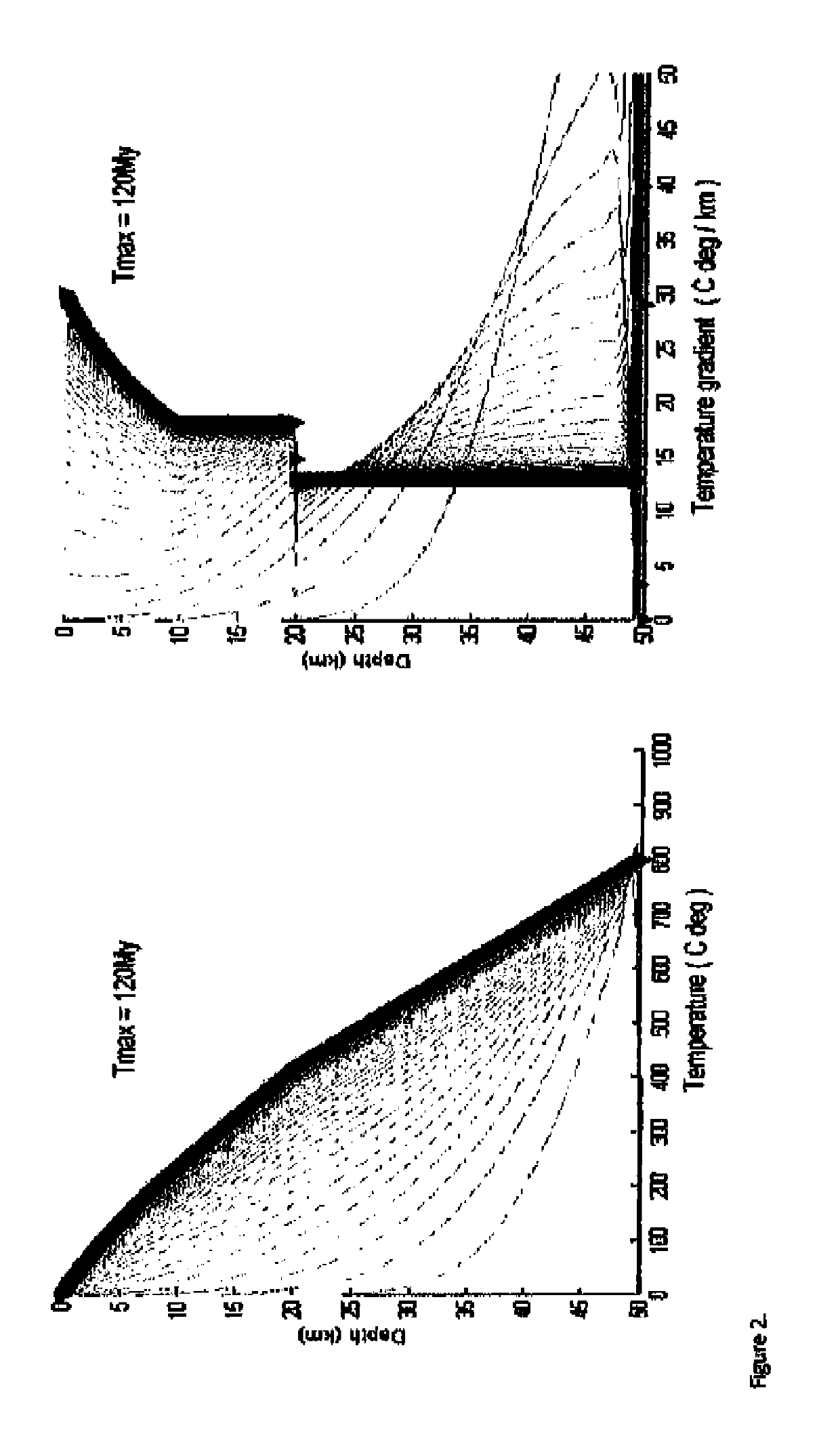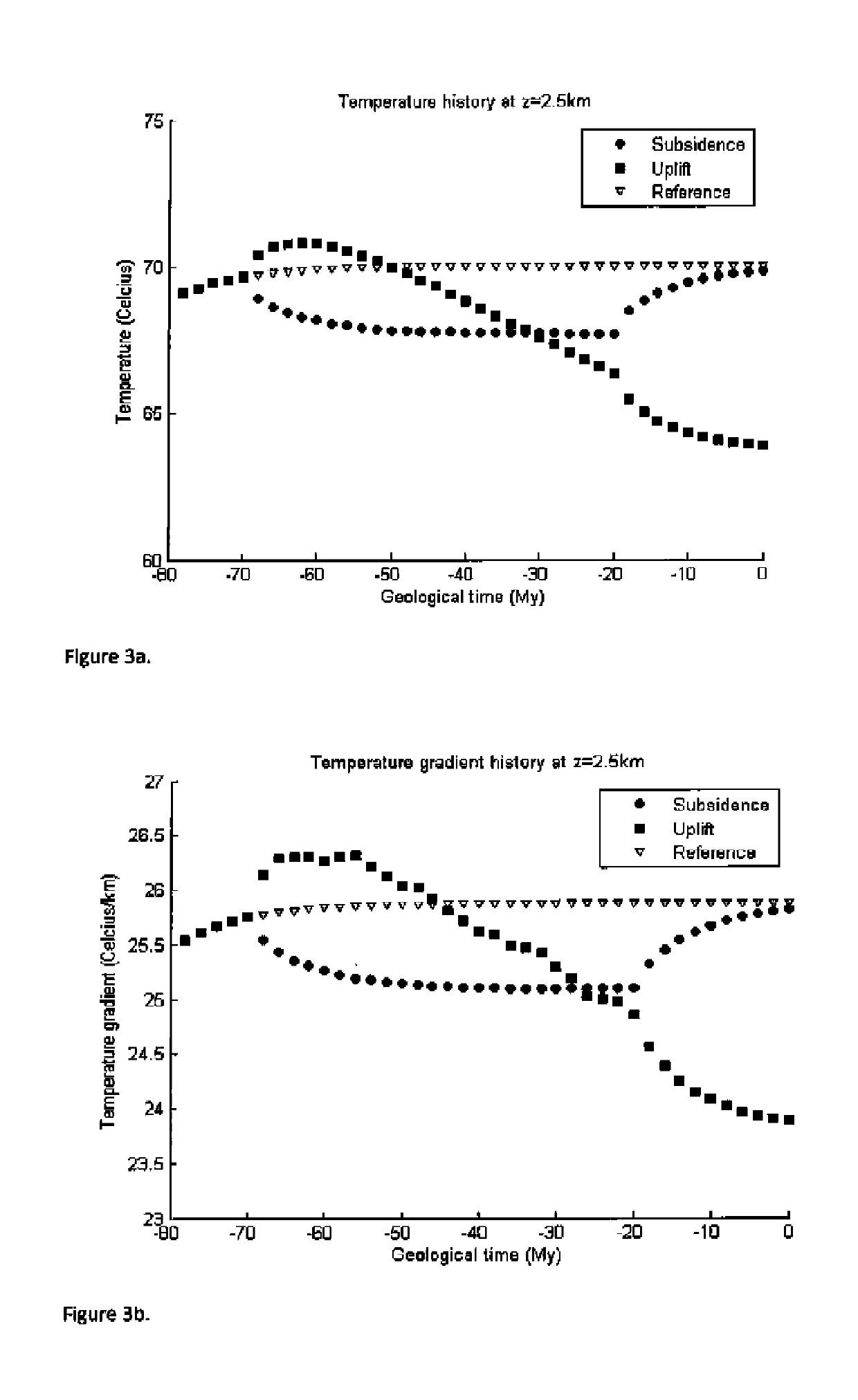Temperature modeling constrained on geophysical data and kinematic restoration
a geophysical data and temperature modeling technology, applied in geomodelling, complex mathematical operations, instruments, etc., can solve problems such as lack of modeling tools that take, and achieve the effect of reducing uncertainty in temperature modeling
- Summary
- Abstract
- Description
- Claims
- Application Information
AI Technical Summary
Benefits of technology
Problems solved by technology
Method used
Image
Examples
Embodiment Construction
[0053]The combination of the following elements constitute the key features of the invention: seismic velocity analysis, magnetic and gravity inversion, a rock physics model, structural geological models, numerical modeling and electromagnetic data.
[0054]The heat flow (diffusion) equation (including advection and convection) is linked to density via gravity, and then linked to seismic velocity via the rock physics model. This results in a relation between heat conductivity and seismic velocity.
[0055]Various history scenarios can be included into the modeling. A key element is the extensive use of heat diffusion equations to model temperature history based on geological history and corresponding time-dependent geophysical properties, whereby the model is established explaining the present-day geophysics and temperature observations, including direct temperature measurements in wells and heat flow at the seafloor or surface.
[0056]Two key elements of the present invention are as follow...
PUM
 Login to View More
Login to View More Abstract
Description
Claims
Application Information
 Login to View More
Login to View More - R&D
- Intellectual Property
- Life Sciences
- Materials
- Tech Scout
- Unparalleled Data Quality
- Higher Quality Content
- 60% Fewer Hallucinations
Browse by: Latest US Patents, China's latest patents, Technical Efficacy Thesaurus, Application Domain, Technology Topic, Popular Technical Reports.
© 2025 PatSnap. All rights reserved.Legal|Privacy policy|Modern Slavery Act Transparency Statement|Sitemap|About US| Contact US: help@patsnap.com



